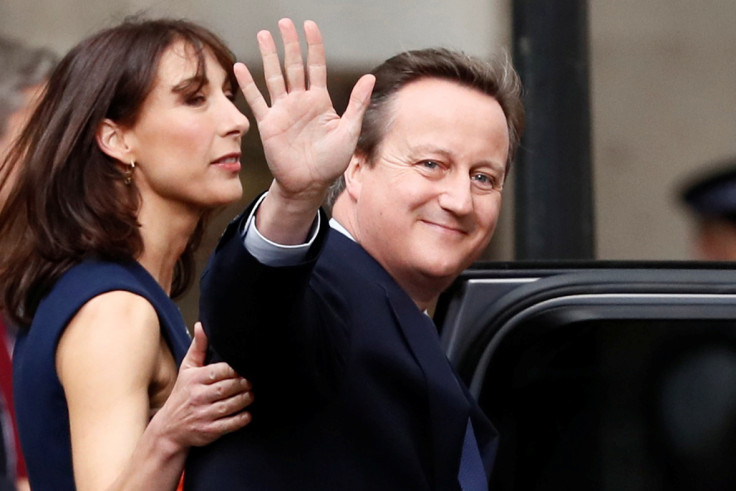David Cameron modernised the Tory party and returned them to power
There was a genuine feeling in 2005 that the Conservatives would be locked out of power forever.
Politicians can rarely choose how their careers end, but they normally have at least some say in how they begin. The opening scene of David Cameron's leadership of the Conservative Party was quite remarkable.
Up against David Davis, the firm favourite in a ballot of the Tory faithful, he refused to kowtow to what he thought the members wanted (pay attention, Owen Smith). He never promised that his Party would like him very much, or even that he particularly liked them. Instead, he promised to return them to power.
Judge his leadership on those terms, and it's fair to say that he delivered - though not necessarily as he might have imagined. He challenged his own grassroots mercilessly; officially in the name of making his party modernise its attitudes, but also in the full knowledge that if voters who disliked "the nasty party" saw Cameron riling them up then it might cast him in a positive light.
At the same time, he revolutionised Conservative tone, style and tactics - catapulting the Tories into the 21st Century. The stunt with the huskies seems absurd in retrospect - indeed to many it seemed absurd at the time - but for all the mockery, his campaign did change perceptions of his party, bit by bit.
Cameron also fulfilled his promise of a return to power - an achievement that should not be underestimated, given the genuine feeling in 2005 that perhaps the Conservatives would be locked out of power forever. First through coalition and then through the first Tory majority in over 20 years, he ensured that his party was able to shake off that feeling of hoodoo and become once more an organisation with an attendant air of election-winning confidence.

While he revolutionised Conservative fortunes, though, he never managed to revolutionise Britain. His modernising project never lived up to its own hype - if anything, his eleven years as a leader were a tale of the gradual collapse of his political analysis in the face of undeniable reality.
Fiscal toughness, which he had once dismissed as outdated and unattractive, was forced on him by the financial crisis. It's often forgotten now, but for months after the banks began to topple Cameron and Osborne were still insisting on matching Brown's unsustainable spending plans. Only belatedly did they concede that the unfashionable fiscal instincts of the crusty Tory right had been correct all along.

Fads like "vote blue, go green" and "the big society", which he expected to become more popular with time, were battered to pieces by the demands of hard-nosed voters who demanded firm action given the tough circumstances.
Having fallen short using such fluffy messages in 2010, he was forced to adopt a tougher, more right-wing message in order to hammer his way to a historic majority in 2015 - the direct opposite of his 2005 plan.
If anything, his modernisation had been outpaced by modernity. Reading back, arguments that sounded cutting edge and refreshing when Blair was still in power now feel quaintly outdated, a relic from a different age. Austerity aside, only the overdue introduction of Same Sex Marriage - a topic on which his modernising instincts were both correct and strong - seems likely to last as a policy legacy. Otherwise, Cameron's starting analysis of what the future would look like turned out to be wrong, and he found himself responding to events rather than shaping them as a result.
Nowhere was that more true than on the EU. His strategy of tough love towards the Tory membership was inspired by Blair's challenge to the Labour traditionalists in the 1990s. Cameron reaped some similar benefits, but also paid a greater price. Whereas disgruntled Labourites had few places to go but the wilderness, more than a few peeved Tories took up Nigel Farage's invitation to take refuge in Ukip. He helped to fuel an ever-present threat on his right flank.
Had his assumption that Euroscepticism was a dying cause been correct, that might not have been a problem. Stop "banging on about Europe", he told his party conference. Unfortunately for him, that turned out to be a fatal error. Far from diminishing as a concern, as he expected, it grew and grew, fed further by the migration crisis and the woes of the Eurozone. Eventually, 17.4 million people voted Leave, making his position untenable.
It was a final reminder that while Cameron was both likeable and able, his analysis of British politics as an inevitable march towards mild, metropolitan centrism was sorely mistaken. He was an adaptable and agile survivor, but eventually that error became too much to bear any longer.
Mark Wallace is Executive Editor of Conservative Home
© Copyright IBTimes 2025. All rights reserved.






















